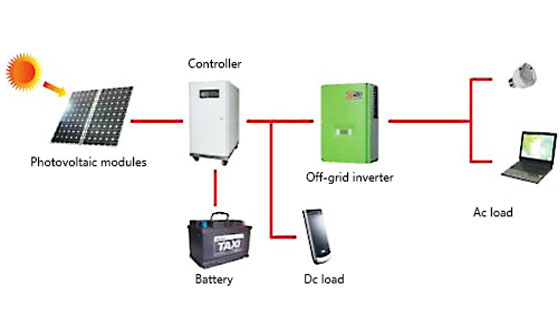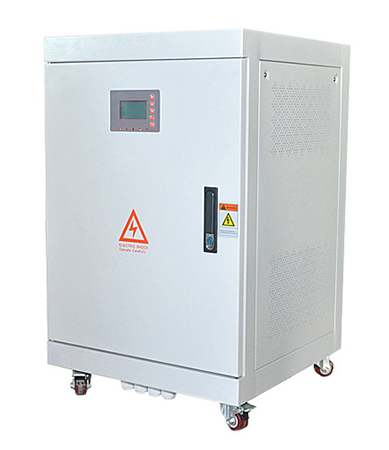Off-grid solar inverters are a crucial component of solar power systems, converting the direct current (DC) generated by solar panels into alternating current (AC) to meet the needs of various electrical appliances in homes or businesses. When building an off-grid solar system, choosing a high-performance, reliable inverter is essential. Inverter.com here will introduce some tips and key points for purchasing the best off-grid inverter, helping readers make informed decisions from a professional perspective.
With the continuous advancement of renewable energy technologies, off-grid solar systems are gaining popularity due to their environmental benefits, energy savings, and independent power supply. As one of the core components of an off-grid solar system, the inverter's performance directly impacts the overall system's operational efficiency and stability. Therefore, when selecting an inverter, we need to consider multiple factors comprehensively to ensure the system's stable operation and efficient output.

What are the basic parameters of inverters?
Before purchasing an off-grid inverter, it's essential to understand some basic parameters to better choose a product that meets your needs. These parameters include the inverter's power capacity, output voltage and frequency, and input DC voltage range.
- Power Capacity of the Inverter: The power capacity of an inverter refers to its maximum output power. When selecting an inverter, you need to determine the required power capacity based on the total power and operating time of your load devices. Generally, the inverter's power capacity should be slightly higher than the total power of the load devices to ensure stable operation under full load conditions. Additionally, the inverter should have some overload capacity to handle sudden increases in load.
- Output Voltage and Frequency: The output voltage and frequency of the inverter should match the rated voltage and frequency of your load devices. Since voltage and frequency standards vary by country and region, it's important to understand the local standards and choose an inverter that meets these standards.
- Input DC Voltage Range: The input DC voltage range of the inverter should cover the output voltage range of the solar panel. The output voltage of solar panels can be affected by factors such as light intensity and temperature, so the inverter's input DC voltage range should be compatible to ensure it operates normally under different lighting conditions.
Choosing a pure sine wave inverter
When selecting an off-grid inverter, it is recommended to choose a pure sine wave inverter rather than a modified sine wave inverter. Pure sine wave inverters provide high-quality, noise-free, clean waveforms, allowing load devices to operate smoothly and without issues. In contrast, modified sine wave inverters produce waveforms that contain harmonics, which can potentially damage sensitive electronic equipment.
What should be considered when buying off-grid inverters?

1. Focus on Inverter Efficiency and No-Load Current:
The efficiency and no-load current of an inverter are critical performance indicators. High-efficiency inverters can reduce energy loss and improve the overall efficiency of the system. When selecting an inverter, pay attention to its peak conversion efficiency and average conversion efficiency, opting for products with higher efficiency. Additionally, the no-load current, which is the current consumed by the inverter when there is no load, should be as low as possible to minimize unnecessary energy waste.
2. Check the Inverter's Surge Capacity and Charge Controller:
When purchasing an off-grid inverter, it’s important to consider its surge capacity and the output current capability of its charge controller. Many AC loads are motor-based, such as refrigerators, blenders, and pumps, which produce high surge currents upon startup. Therefore, choose an inverter with sufficient surge capacity to handle the surge current when these loads start. Additionally, some off-grid inverters have integrated charge controllers for managing battery charging. When selecting such inverters, ensure that the charge controller's output current capacity meets your battery charging needs.
3. Consider the Inverter's Thermal Resistance and Warranty Period:
Inverters generate heat during operation, and poor cooling can lead to increased temperatures, affecting performance and lifespan. Therefore, consider the inverter's thermal resistance and select products with good cooling performance, such as a 1000watts off-grid solar inverter in Inverter.com. Additionally, the warranty period is an important factor to consider. Most manufacturers offer a 4-5 year warranty, but some provide longer warranties, such as 10 years. Prioritize inverters with longer warranties to ensure better after-sales support.
4. Consider the Inverter's Brand and After-Sales Service:
Brand and after-sales service are crucial when choosing an inverter. Products from well-known brands typically offer better quality and performance assurance, and comprehensive after-sales service provides timely technical support and maintenance. Therefore, prioritize products from reputable brands and understand their after-sales service policies.
5. Make a Decision Based on Actual Conditions:
When choosing an off-grid inverter, it's essential to consider your specific conditions. Factors such as local sunlight conditions, the type and number of load devices, and the usage environment can all influence your choice. Therefore, before purchasing an inverter, thoroughly understand and analyze your actual situation to select the product that best meets your needs.
Choosing the right off-grid inverter is crucial for building an efficient and stable off-grid solar system. When purchasing an inverter, consider multiple factors such as power capacity, output voltage and frequency, input DC voltage range, waveform type, efficiency and no-load current, surge capacity and charge controller, thermal resistance and warranty period, as well as brand and after-sales service. By comprehensively evaluating and comparing these factors, you can select a high-performance, reliable inverter to ensure the stable operation of your off-grid solar system.
